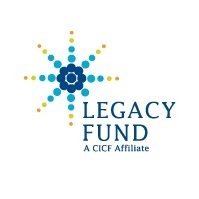MUNCIE -- Purdue Extension is conducting meetings to gauge interest in establishing a central Indiana food hub that would coordinate supply chain logistics for small and medium-size farmers and ranchers.
It's a subject about which Michael O'Donnell, the new agriculture and natural resources extension educator in Delaware County, knows a thing or two.
 |
Michael O'Donnell (left) the new agriculture and natural resources
extension educator for Delaware County, talks with Dan Rhum at Rhum Farm
in Muncie. / Kurt Hostetler / The Star Press
|
While O'Donnell earned bachelor's and master's degrees in mechanical engineering from Purdue University and the University of Texas at Austin, he went to work for Johnson's Backyard Garden in Austin while writing his thesis on "Barriers to a Biofuels Transition in the U.S. Liquid Fuels Sector."
That hooked him on alternative farming.
"The local food movement is gaining momentum," said O'Donnell, who grew up in suburban West Lafayette. "People are embracing it for a reason. I wanted to immerse myself in it."
The U.S. Department of Agriculture, which is committed to food hubs, has a working list of U.S. food hubs that numbers around 200, including seven in Ohio, eight in Illinois, five in Michigan, four in Kentucky and one in Indiana (Green B.E.A.N. Delivery, serving greater Indianapolis and Fort Wayne).
Food hubs aggregate, process, store, market, certify, brand and distribute local produce from many small farmers to large buyers like schools and hospitals.
"Purdue Extension is conducting a feasibility study to see if a food hub makes sense in central Indiana," O'Donnell said.
He called the concept another marketing opportunity for producers who typically sell meat, eggs, cheese and produce at roadside stands and farmers markets.
It could lead to increased local food production.
"A lot of producers might be afraid to expand if their farmers market is saturated," O'Donnell said. "If a food hub becomes available, maybe they will take it to the next step."
Johnson's Backyard Garden in Austin started in a backyard in 2004. It now provides locally grown, certified organic produce to farmers markets around Austin, top restaurants and grocery stores. Johnson's also sells memberships. Those who join pay in advance for a share of the upcoming harvest.
As a volunteer, then as a paid employee, O'Donnell gained experience at Johnson's in greenhouses, planting, fertilizing, management, cultivating, harvesting, storage, delivery and sales.
Then he and his wife, Sara (Reed), whose family owns a Hoosier Homestead farm in Daleville, decided to return to Indiana to be closer to family. O'Donnell landed a job at Moody's Butcher Shop, a "gate to plate" farm in Montgomery County that raises free-range chicken, eggs and beef. There, he again learned all aspects of the operation, including slaughtering. "I worked on the kill floor," he said.
The couple, who have two children, then moved to Daleville, where they live on her family's farm. O'Donnell taught math part-time at Ivy Tech Community College before he was hired as an extension educator in Muncie.
Dave Ring, owner of the Downtown Farm Stand, called O'Donnell open-minded and knowledgeable about organic farming. "I think he's going to be a real asset to this area in helping to develop a food system more like Bloomington, Indiana," Ring said.
O'Donnell himself is already supplying rhubarb, spinach, lettuce, radishes, turnips and other produce to the Downtown Farm Stand from the farm in Daleville. On Wednesday night, O'Donnell planned to attend a board meeting of Slow Food ECI, a local chapter of Slow Food USA, which links the pleasure of food with a commitment to community and the environment.
Purdue Extension is holding meetings on the proposed central Indiana food hub on Tuesday at the Hamilton County Purdue extension office in Noblesville, on Wednesday in the Hancock County Purdue extension office in Greenfield and on Thursday at the Henry County Purdue extension office, 1201 Race St., New Castle. All meetings start at 6 p.m.
"I would have sponsored a meeting in Delaware County but I arrived at this job too late," O'Donnell said.
With the infrastructure possible in an advanced food hub, consumers could benefit from access to frozen, canned and otherwise preserved and stored regional products year round, said Roy Ballard, an extension educator in Hancock County.
"Possibilities would include a retail facility, direct-to-door delivery and even drop-off of prepared, customized products at a community pickup point," Ballard said. "Each of these would build on the option of consumers shopping in more traditional farmers markets, roadside stands and farm markets."
As to how wide an area the hub would serve, Ballard said, "I foresee the potential of a hub serving farmers within a two- hour drive of the hub."





































